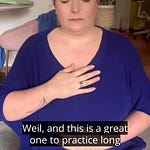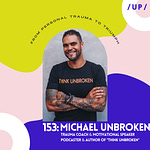Shayla Swint is a 25-year-old college grad from Houston, Texas. Like the old adage, “Don’t judge a book by its cover,” Shayla is so much more than what we can see…she lives with connective tissue disorder Ehlers-Danlos Syndrome (EDS), hypermobile type. She’s survived over 15 surgeries thus far, and lives in an almost-constant state of pain and anxiety due to the condition. When she says that “her body’s trying not to fall apart,” it almost seems an understatement. And yet…she manages to keep going. In this interview, she tells us her story.
Tune in as Shayla shares:
that she suffered from numerous injuries during physical activity in childhood, and her hypermobility was also present at this early stage of development
that early on, her orthopedist suspected she had EDS — but was unable to provide the genetic testing to confirm it
that she was finally diagnosed with hypermobile EDS a decade later
that between the ages of 13-18, she had multiple surgeries — and didn’t get her official diagnosis until 2 years ago, at the age of 23
why her diagnosis was validating
that one rheumatologist told her, “Black people don’t get EDS” — and her response was to lose all trust in the system for a time
the importance of mental health support — and that it was never recommended as part of her diagnosis or treatment plan…but, thankfully, by her mother
that she’s been exploring a vegan diet in order to reduce inflammation
that her mom has chronic migraine — and understands what it’s like to advocate and live in chronic pain
how she has disclosed and managed her pain in work environments — and where she’s struggled to achieve easy accommodations (even when she presented solutions)
how triggering it can be to pursue legal action in disability cases — and why so many individuals don’t do so
why remote work during COVID has been so much more comfortable for her
the difficulties she had receiving disability accommodation during college, and why her disability being invisible made that fight even harder
how her race has impacted her treatment in the medical system
the impact of community on her experience, especially as a WOC
why change in our healthcare system is so desperately necessary














Share this post